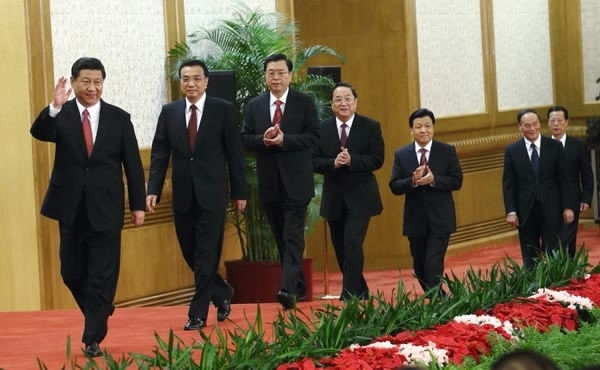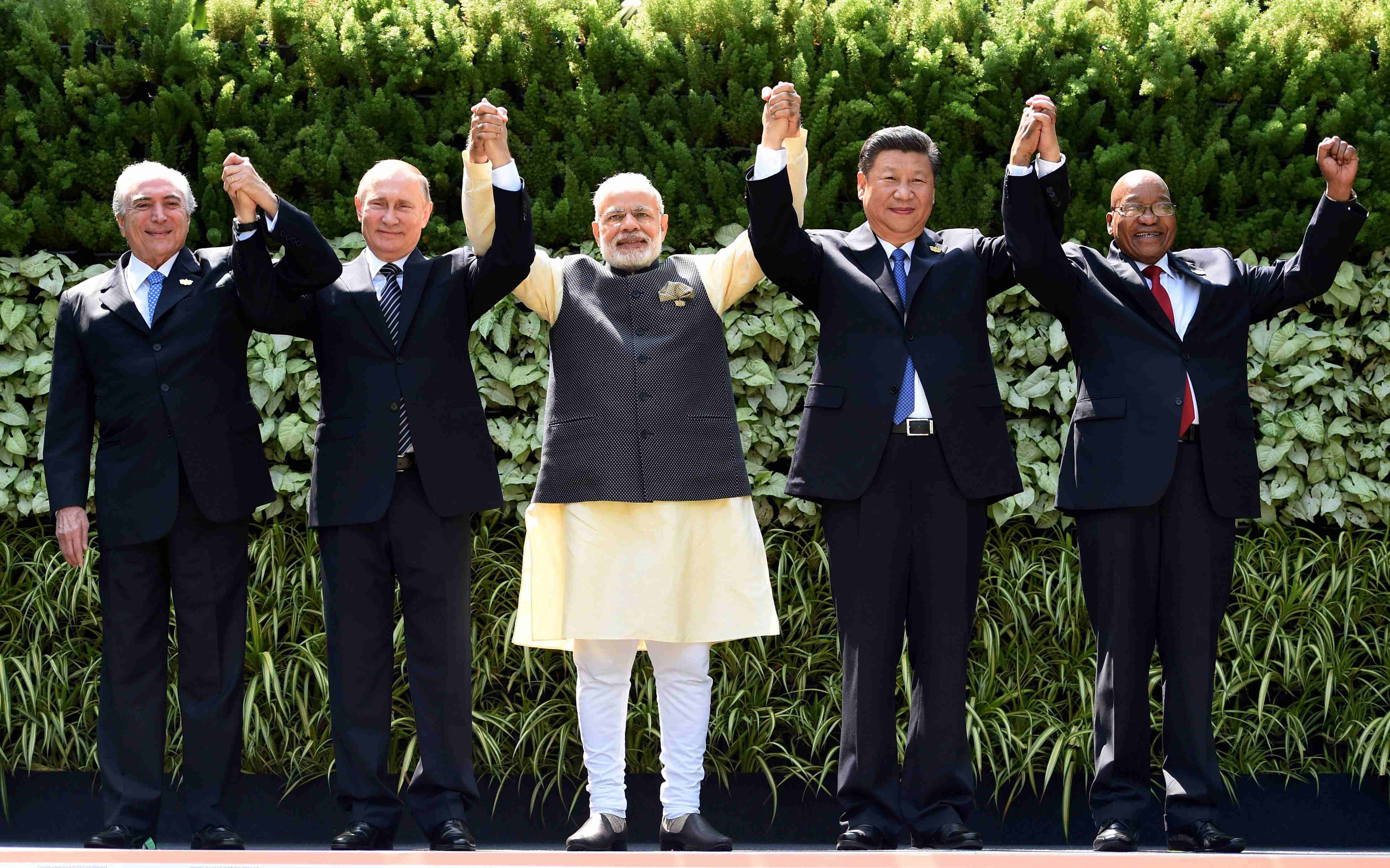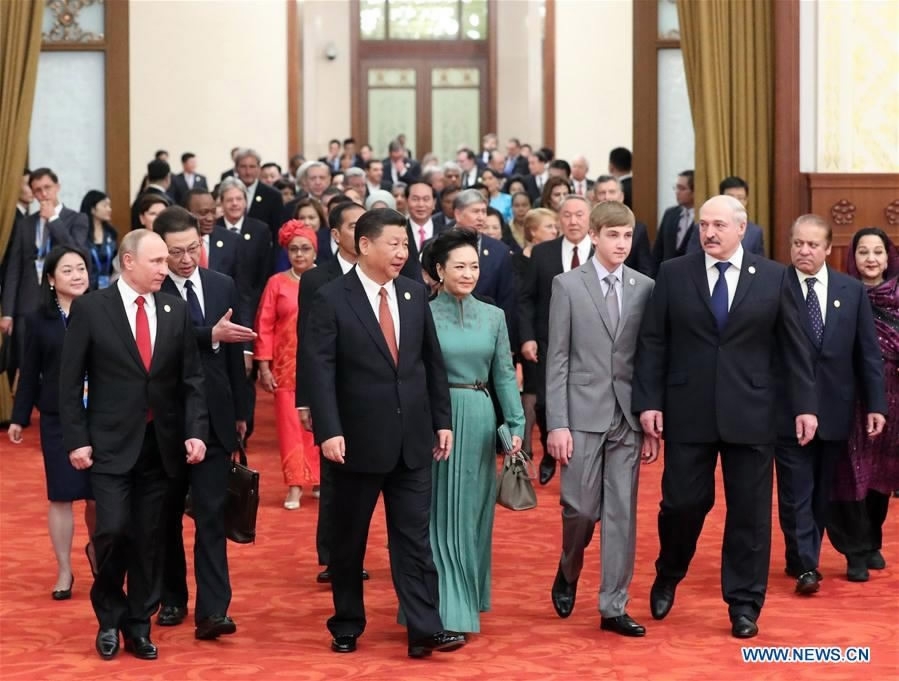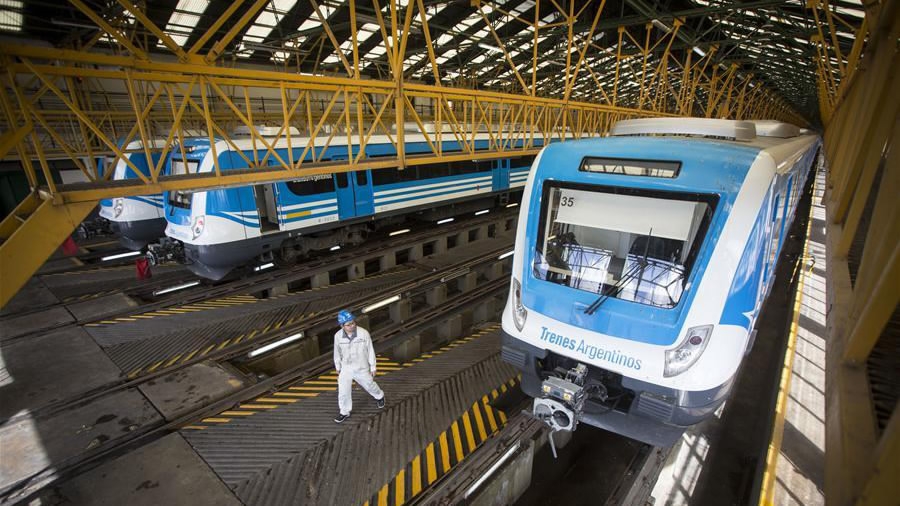The 19th National Congress of the Communist Party of China (CPC) will be held in October and is of great significance to the Chinese domestic development as well as the country's foreign policy. As the second-largest economy in the world, the role that China seeks to play in the years to come will have an enormous impact on the rest of the world and the evolution of international order.
The CPC National Congress is convened every five years. The report delivered by the Party’s top leader during the congress could shed a light on the trajectory of China’s internal and external developments. Compared to other major powers, Chinese foreign policy is highly linked to the political agenda set by the CPC.
For decades, since the 1970s, the ruling Party’s overarching goal has been to advance a new form of socialism with Chinese characteristics and transforms “the Middle Kingdom” into a modern country. Through the reform and opening up, the CPC has made world-beating achievements in lifting more than 700 million people out of poverty and ensuring stability of this vast and multicultural country.

Members of the Standing Committee of the Political Bureau of the CPC Central Committee (from left) Xi Jinping, Li Keqiang, Zhang Dejiang, Yu Zhengsheng, Liu Yunshan, Wang Qishan and Zhang Gaoli arrive to meet the press at the Great Hall of the People in Beijing after the 18th CPC National Congress on November 15, 2012. /China Daily Photo
Members of the Standing Committee of the Political Bureau of the CPC Central Committee (from left) Xi Jinping, Li Keqiang, Zhang Dejiang, Yu Zhengsheng, Liu Yunshan, Wang Qishan and Zhang Gaoli arrive to meet the press at the Great Hall of the People in Beijing after the 18th CPC National Congress on November 15, 2012. /China Daily Photo
Xi Jinping was elected the Party’s General Secretary at the 18th CPC National Congress in 2012. For him, and the other 90 million members of the CPC, the mission is to realize the “great rejuvenation of the Chinese nation.” According to an OECD forecast, by 2060 China could become the world’s largest economy.
However, what China wants is not the “No.1 position” embraced by Britain in the 19th century or the US in the 20th, but instead China wants to be a major player on the world stage that can play a kind of facilitating role rather than hegemonic global leadership – “realizing yourself by helping others.”
As the Global Trends 2030 report authored by the US National Intelligence Council argued, in this century, it is nearly impossible for any country including the US to enjoy a hegemonic position. Though it has become powerful as a whole, China has to tackle a number of daunting domestic challenges such as economic transformation, social inequality and environmental degradation.
In addition, China is in a very disadvantageous position in terms of geopolitics, it faces hostile reactions and counterbalancing efforts made by other major powers if it pursues a hegemonic strategy. In short, it is a self-defeating choice for China to compete for primacy against the US.
In light of unprecedented interdependence between China and the rest of the world, Xi Jinping proposed a key concept defining Chinese foreign policy – “A Community of Shared Future for Mankind.”
The idea is not as abstract as it sounds, rather, it is a grand and multi-faceted design. First, Beijing seeks to build up a new-type of major power relations with the US and other global players. It is vital to prevent the China-US relationship from becoming confrontational.

Leaders of BRICS nations pose for a group photo during the BRICS Summit in Goa on October 16, 2016. / AFP Photo
Leaders of BRICS nations pose for a group photo during the BRICS Summit in Goa on October 16, 2016. / AFP Photo
Second, China wants to reshape its ties with other emerging countries such as India and Brazil by virtue of the BRICS mechanism. As Chinese President Xi Jinping once said, “The BRICS cooperation is an innovation, which transcends the old pattern of political and military alliance and pursues partnerships rather than alliances.” Evidenced by many cooperation agreements covering trade, investment and security issues, the BRICS Xiamen Summit in early September 2017 aims to usher in the second golden decade of the mechanism.
Third, China’s participation in global governance has been given much more importance by Xi Jinping since the 18th CPC National Congress. China has gained more influence in the international economic institutions such as the IMF. The country also led the efforts to build up new multilateral institutions like the Asian Infrastructure Investment Bank. In global climate governance,China displays its responsible leadership in facilitating and protecting the Paris Accord.
For the CPC’s leadership, international politics are in flux. With US President Donald Trump administration’s “America First” policy at play, the global economy now faces the major risk of declining multilateralism. In January 2017, Xi attended the World Economic Forum in Davos, Switzerland, which showed China’s support for globalization. In his keynote speech, his commitment to an open economy and firm opposition to trade protectionism was particularly impressive.
For many, it may be surprising to hear such encouraging words by the CPC’s top leader. But, the Party has a firm belief that China’s rejuvenation cannot be achieved without maintaining the openness and inclusiveness of the world.

Chinese President Xi Jinping, his wife Peng Liyuan and other distinguished guests of the Belt and Road Forum for International Cooperation attend a welcome banquet in Beijing on May 14, 2017. /Xinhua Photo
Chinese President Xi Jinping, his wife Peng Liyuan and other distinguished guests of the Belt and Road Forum for International Cooperation attend a welcome banquet in Beijing on May 14, 2017. /Xinhua Photo
The Belt and Road Initiative is another salient indication of such belief. It was proposed by Xi Jinping during his trips to Central Asia and Southeast Asia in 2013. In today’s ever-independent world, it is nurturing connectivity of infrastructure, trade, currency and culture between China and other countries which can really empower this rising country.
The Belt and Road Initiative is not only crucial in addressing China’s own challenges like enhancing energy security, but also unquestionably beneficial to other participating countries and international organizations. With the Belt and Road Initiative gaining wider world support, Xi Jinping strives to promote a new type of international relations featuring win-win cooperation.
The CPC has been famous for its capacity to make and realize long-term development plan. The 19th CPC National Congress will be of great importance for the Party’s “Two Centennial Goals.”
The CPC has vowed to build an “all-round moderately prosperous society” in China for the Party’s centennial in 2021, and a “modern socialist country” by 2049 when the People’s Republic of China marks its centennial. The next five years will mark the transition from the first to the second centennial goals.
As Xi Jinping emphasizes repeatedly, China will not tread an easy path to be a truly global power. In fact, the whole world is also closely watching the path the CPC would choose for realizing China’s rejuvenation. The key policy lines governing Chinese foreign relations in the next 5-10 years could be unveiled in the coming CPC National Congress.
(The author is a senior research fellow with The Charhar Institute and an adjunct fellow at the Chongyang Institute for Financial Studies at Renmin University of China. The article reflects the author’s opinion, not necessarily the view of CGTN.)





